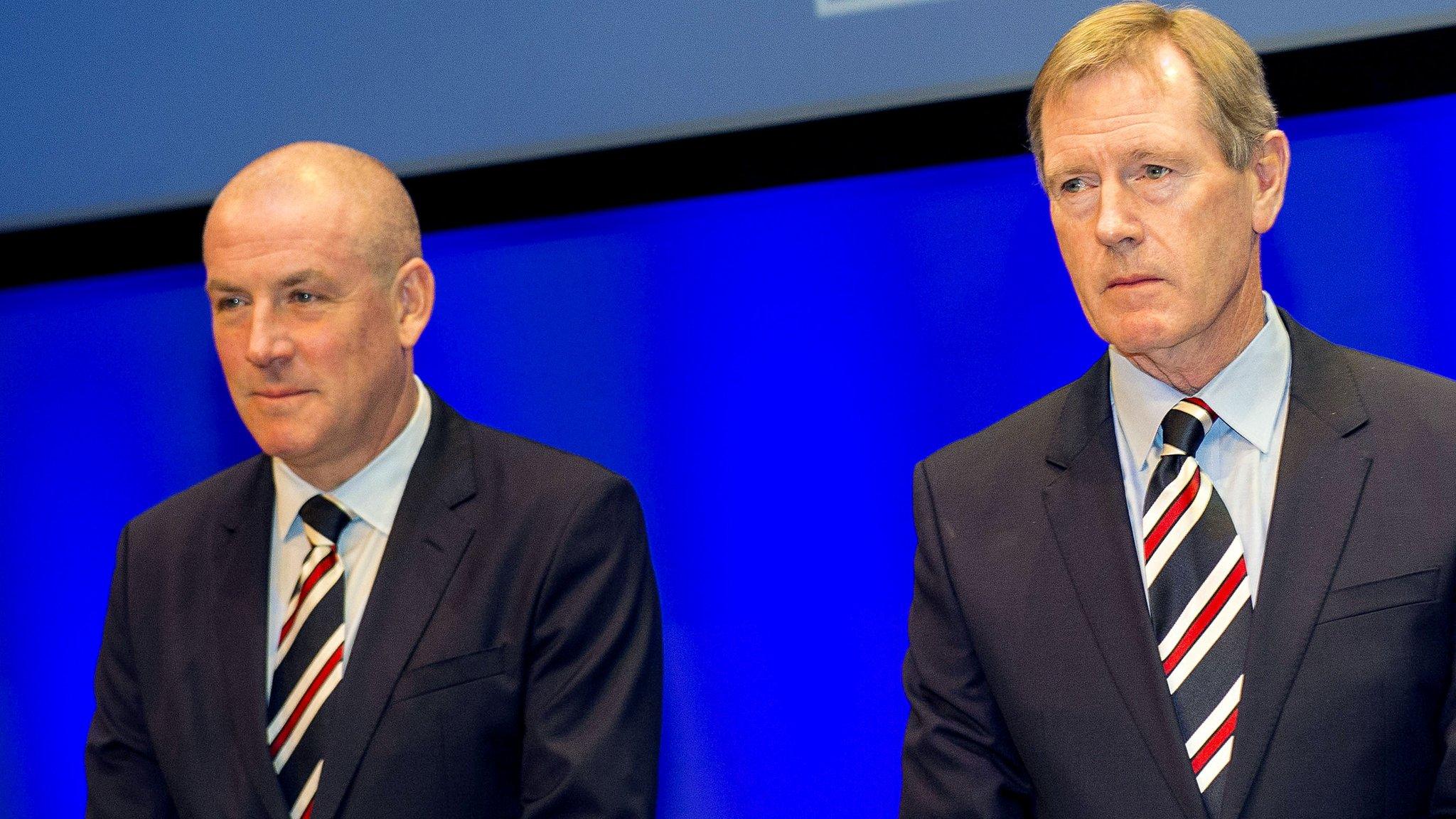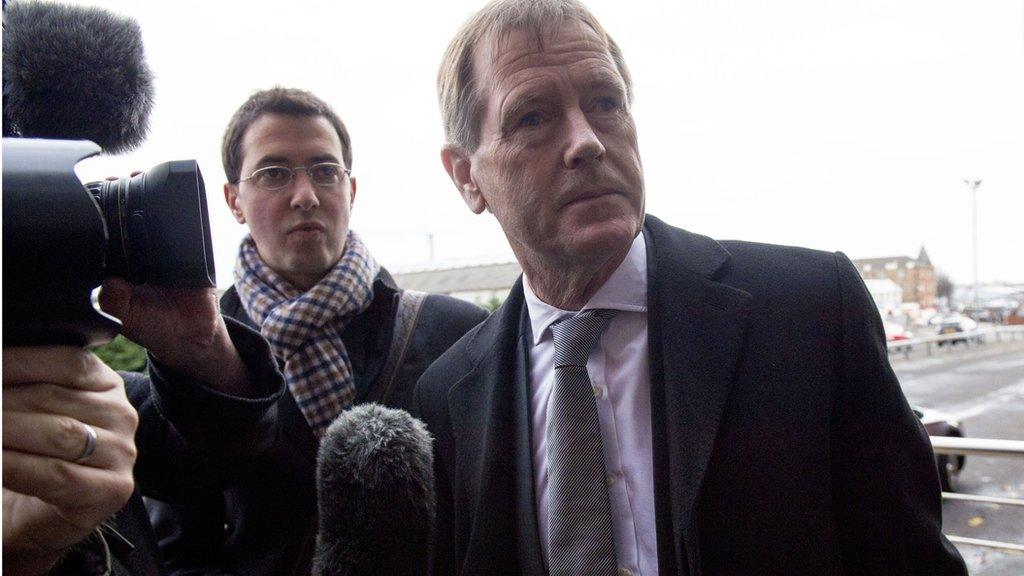Ibrox control setback for chairman Dave King
- Published

Dave King took control of Rangers in March
Rangers chairman Dave King could face a bill of up to £12m after a ruling on how he took charge of the Ibrox club.
He could now be liable to buy all the shares in the holding company Rangers International Football Club, held by other shareholders - at 20p a share.
The Takeover Appeal Board (Tab) made the ruling after deciding he worked in "concert" with three others when he bought shares.
Mr King said he did not agree with the ruling or the share price.
The Tab ruling said Mr King, along with George Letham, George Taylor and Douglas Park, had acted as a "concert party" to acquire shares in the company, rather than acting as an individual.
It said he was therefore required to make an offer to buy all the shares in the holding company.
There are approximately 87 million RIFC shares, and Mr King and the three others own 33% of these, with the rest held by individual supporters and other investors.

From Douglas Fraser, BBC Scotland business and economy editor
A concert party, in company law, isn't as entertaining as it might sound. It's when a group act in concert, together, and thus get round the intention of the law.
Company law recognises that takeovers, sometimes hostile, are not to be discouraged. But if they take place, they ought to be fair, and to some extent open.
A basic element of that is that, as a potential bidder buys up shares in a target company, often in small quantities, the bidder has to declare her/his hand.
In publicly traded shares, as a series of ownership thresholds are passed, the market has to be informed. And when you get to 30%, the bidder has to go for it, or back down.
At that level, it is possible to have effective control of a company, even if you don't have more than half the voting rights. And the law seeks to protect the interests of small-scale shareholders. Theoretically, a bidder with a controlling stake could act solely in her/his interests, and act against the interests of other shareholders.
A concert party is when more than one person or company is building up stakes in the company, having agreed a takeover strategy in advance.
The takeover law requires them to declare their co-operation and if they don't, retrospective action can be taken.
That's what has happened in Rangers case. At least one outcome of the legal process is that it has laid out the unhelpful attitude Dave King has towards such regulators, and the extraordinary complexity of the trust network - Virgin Islands, via Gibraltar via Guernsey - by which he acquired his stake in the Ibrox club.

Mr King, who led a successful boardroom takeover in 2015, said he would take time to reflect upon the ruling and consider the best course of action for himself, RIFC and its shareholders
In a statement on the Rangers Football Club website, external, he said: "I am only one of a vast number of Rangers supporters and shareholders who fought to rescue our club.
"The Rangers Football Club should never have become caught up in a takeover struggle.
"Those who placed it in that position bear a heavy responsibility."
He added: "I do not believe that there is any substantial group of RIFC shareholders that would be willing to sell its shares in RIFC at the price at which the Tab has determined I should make an offer.
"20p is not a price that I personally believe represents a fair price for RIFC's shares, nor is it the price at which shares in RIFC are currently trading."
He said that even if he proceeded with an offer, it would be rejected by an "overwhelming majority of RIFC's shareholders".
- Attribution
- Published25 November 2016

- Attribution
- Published6 March 2015

- Published6 March 2015

- Published6 March 2015
